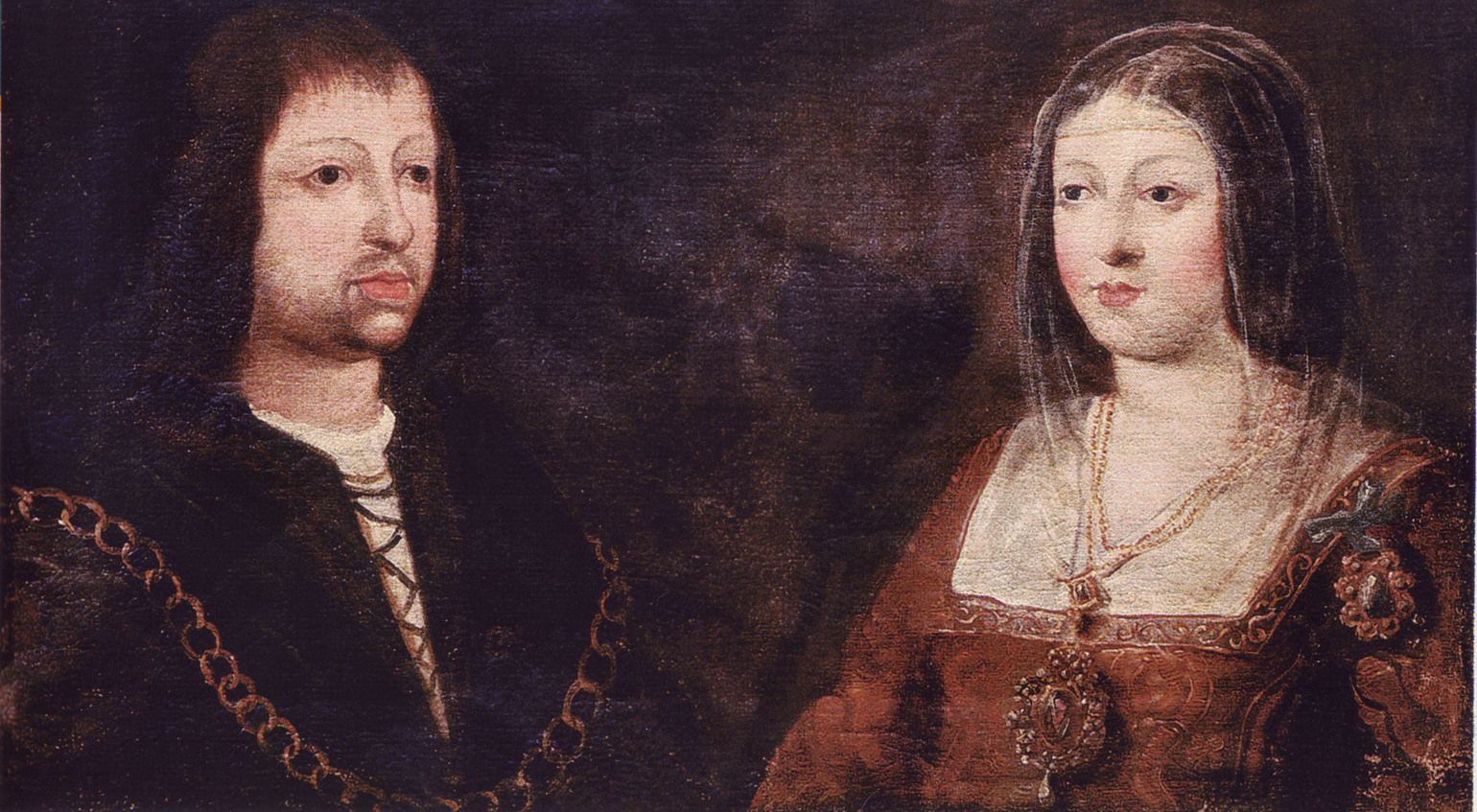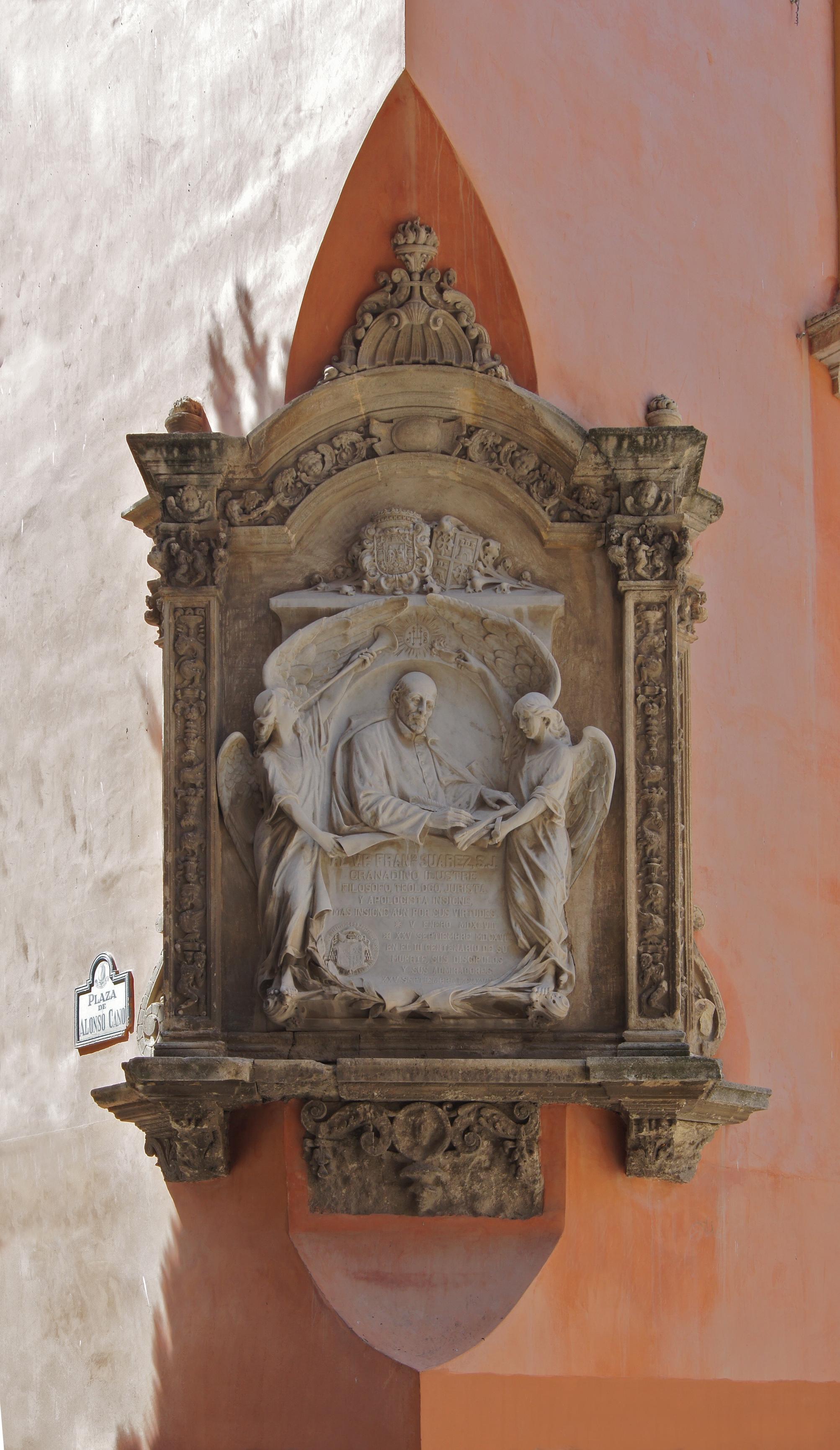|
Papal Donation
"Papal donation" refers to two sets of papal bulls by which Pope Nicholas V, in 1454, and Pope Alexander VI, in 1493, purported to give the Catholic monarchs of Portugal and Spain, respectively, the prerogative to explore the Americas. Alexander's bull, proclaimed on 4 May 1493, was titled ''Inter caetera'' and addressed to Ferdinand and Isabella, the Catholic Monarchs of Spain, and later Catholic monarchs of Spain. England and France opposed the papal donation. Jurists including Francisco de Vitoria Francisco de Vitoria ( – 12 August 1546; also known as Francisco de Victoria) was a Spanish Roman Catholic philosophy, philosopher, theology, theologian, and jurist of Renaissance Spain. He is the founder of the tradition in philosophy known ... and Francisco Suárez argued that the pope did not have power to award territory to sovereigns. Citations Works cited * * * * * Canon law history Portuguese colonization of the Americas Spanish colonization of the America ... [...More Info...] [...Related Items...] OR: [Wikipedia] [Google] [Baidu] |
Pope Nicholas V
Pope Nicholas V ( la, Nicholaus V; it, Niccolò V; 13 November 1397 – 24 March 1455), born Tommaso Parentucelli, was head of the Catholic Church and ruler of the Papal States from 6 March 1447 until his death in March 1455. Pope Eugene IV, Pope Eugene made him a Cardinal (Catholic Church), cardinal in 1446 after successful trips to Italy and Germany, and when Eugene died the next year, Parentucelli was elected in his place. He took his name Nicholas in memory of his obligations to Niccolò Albergati. The pontificate of Nicholas saw the fall of Constantinople to the Ottoman Turks and the end of the Hundred Years War. He responded by calling a crusade against the Ottomans, which never materialized. By the Concordat of Vienna he secured the recognition of papal rights over bishoprics and benefices. He also brought about the submission of the last of the antipopes, Felix V, and the dissolution of the Synod of Basel. A key figure in the Roman Renaissance, Nicholas sought to make Ro ... [...More Info...] [...Related Items...] OR: [Wikipedia] [Google] [Baidu] |
Pope Alexander VI
Pope Alexander VI ( it, Alessandro VI, va, Alexandre VI, es, Alejandro VI; born Rodrigo de Borja; ca-valencia, Roderic Llançol i de Borja ; es, Rodrigo Lanzol y de Borja, lang ; 1431 – 18 August 1503) was head of the Catholic Church and ruler of the Papal States from 11 August 1492 until his death in 1503. Born into the prominent House of Borgia, Borgia family in Xàtiva under the Crown of Aragon (now Spain), Rodrigo studied law at the University of Bologna. He was ordained deacon and made a Cardinal (Catholic Church), cardinal in 1456 after the election of his uncle as Pope Callixtus III, and a year later he became Apostolic Chancery, vice-chancellor of the Catholic Church. He proceeded to serve in the Roman Curia, Curia under the next four popes, acquiring significant influence and wealth in the process. In 1492, Rodrigo was elected pope, taking the name Alexander VI. Alexander's Inter caetera, papal bulls of 1493 confirmed or reconfirmed the rights of the Spanis ... [...More Info...] [...Related Items...] OR: [Wikipedia] [Google] [Baidu] |
Catholic Monarchs Of Spain
The Catholic Monarchs were Queen Isabella I of Castile and King Ferdinand II of Aragon, whose marriage and joint rule marked the ''de facto'' unification of Spain. They were both from the House of Trastámara and were second cousins, being both descended from John I of Castile; to remove the obstacle that this consanguinity would otherwise have posed to their marriage under canon law, they were given a papal dispensation by Sixtus IV. They married on October 19, 1469, in the city of Valladolid; Isabella was eighteen years old and Ferdinand a year younger. It is generally accepted by most scholars that the unification of Spain can essentially be traced back to the marriage of Ferdinand and Isabella. Spain was formed as a dynastic union of two crowns rather than a unitary state, as Castile and Aragon remained separate kingdoms until the Nueva Planta decrees of 1707–16. The court of Ferdinand and Isabella was constantly on the move, in order to bolster local support for the crow ... [...More Info...] [...Related Items...] OR: [Wikipedia] [Google] [Baidu] |
Francisco De Vitoria
Francisco de Vitoria ( – 12 August 1546; also known as Francisco de Victoria) was a Spanish Roman Catholic philosophy, philosopher, theology, theologian, and jurist of Renaissance Spain. He is the founder of the tradition in philosophy known as the School of Salamanca, noted especially for his concept of just war and international law. He has in the past been described by scholars as the "father of international law", along with Alberico Gentili and Hugo Grotius, though some contemporary academics have suggested that such a description is anachronistic, since the concept of postmodern international law did not truly develop until much later. American jurist Arthur Nussbaum noted Vitoria's influence on international law as it pertained to the right to trade overseas. Later this was interpreted as "freedom of commerce". Life Vitoria was born in Burgos or Vitoria-Gasteiz and was raised in Burgos, the son of Pedro de Vitoria, of Alava, and Catalina de Compludo, both of noble fami ... [...More Info...] [...Related Items...] OR: [Wikipedia] [Google] [Baidu] |
Francisco Suárez
Francisco Suárez, (5 January 1548 – 25 September 1617) was a Spanish Jesuit priest, philosopher and theologian, one of the leading figures of the School of Salamanca movement, and generally regarded among the greatest scholastics after Thomas Aquinas. His work is considered a turning point in the history of second scholasticism, marking the transition from its Renaissance to its Baroque phases. According to Christopher Shields and Daniel Schwartz, "figures as distinct from one another in place, time, and philosophical orientation as Leibniz, Grotius, Pufendorf, Schopenhauer and Heidegger, all found reason to cite him as a source of inspiration and influence." Life and career Francisco Suárez, who had Jewish ( converso) ancestry, was born in Granada, Andalusia (southern Spain), on 5 January 1548. After 3 years of preliminary studies from age 10 onwards, in 1561 Suárez matriculated at the University of Salamanca, and studied law. In 1564, at age sixteen, Suárez entered the ... [...More Info...] [...Related Items...] OR: [Wikipedia] [Google] [Baidu] |
Cambridge University Press
Cambridge University Press is the university press of the University of Cambridge. Granted letters patent by Henry VIII of England, King Henry VIII in 1534, it is the oldest university press A university press is an academic publishing house specializing in monographs and scholarly journals. Most are nonprofit organizations and an integral component of a large research university. They publish work that has been reviewed by schola ... in the world. It is also the King's Printer. Cambridge University Press is a department of the University of Cambridge and is both an academic and educational publisher. It became part of Cambridge University Press & Assessment, following a merger with Cambridge Assessment in 2021. With a global sales presence, publishing hubs, and offices in more than 40 Country, countries, it publishes over 50,000 titles by authors from over 100 countries. Its publishing includes more than 380 academic journals, monographs, reference works, school and uni ... [...More Info...] [...Related Items...] OR: [Wikipedia] [Google] [Baidu] |
Verso Books
Verso Books (formerly New Left Books) is a left-wing publishing house based in London and New York City, founded in 1970 by the staff of ''New Left Review''. Renaming, new brand and logo Verso Books was originally known as New Left Books. The name "Verso" refers to the technical term for the left-hand page in a book (see recto and verso), and is a play on words regarding its political outlook and also reminds of the vice versa - "the other way around". History and details In 1970, Verso Books began as a paperbook imprint. It established itself as a publisher of nonfiction works on international politics, focusing on authors such as Tariq Ali. However, Verso Books has also published some fiction over the years as well. The publisher gained early recognition for translations of books by European thinkers, especially those from the Frankfurt School. Verso Books' best-selling title is the autobiography of Rigoberta Menchú, who was awarded the Nobel Peace Prize in 1992.Verso Books ... [...More Info...] [...Related Items...] OR: [Wikipedia] [Google] [Baidu] |
Palgrave Macmillan
Palgrave Macmillan is a British academic and trade publishing company headquartered in the London Borough of Camden. Its programme includes textbooks, journals, monographs, professional and reference works in print and online. It maintains offices in London, New York, Shanghai, Melbourne, Sydney, Hong Kong, Delhi, and Johannesburg. Palgrave Macmillan was created in 2000 when St. Martin's Press in the US united with Macmillan Publishers in the UK to combine their worldwide academic publishing operations. The company was known simply as Palgrave until 2002, but has since been known as Palgrave Macmillan. It is a subsidiary of Springer Nature. Until 2015, it was part of the Macmillan Group and therefore wholly owned by the German publishing company Holtzbrinck Publishing Group (which still owns a controlling interest in Springer Nature). As part of Macmillan, it was headquartered at the Macmillan campus in Kings Cross London with other Macmillan companies including Pan Macmil ... [...More Info...] [...Related Items...] OR: [Wikipedia] [Google] [Baidu] |
The Americas (journal)
''The Americas: A Quarterly Review of Latin American History'' is a quarterly peer-reviewed academic journal covering political, social, economic, intellectual, and religious history of the Americas. It is published on behalf of the Academy of American Franciscan History by Cambridge University Press and the editor-in-chief is Ben Vinson III (George Washington University). The Conference on Latin American History awards an annual prize named for the journal's long-time editor, Antonine Tibesar, for the best article published in the previous year. The journal is a standard in the field of Latin American studies. Abstracting and indexing The journal is abstracted and indexed in: According to the ''Journal Citation Reports'', the journal has a 2016 impact factor The impact factor (IF) or journal impact factor (JIF) of an academic journal is a scientometric index calculated by Clarivate that reflects the yearly mean number of citations of articles published in the last two year ... [...More Info...] [...Related Items...] OR: [Wikipedia] [Google] [Baidu] |
.jpg)



